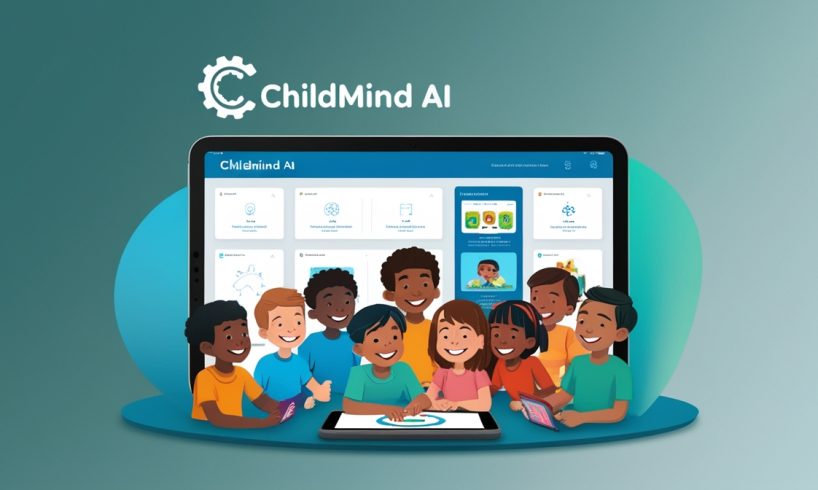
In today’s fast-paced, tech-driven world, parenting has never been more complex — or more supported. As digital technologies reshape nearly every aspect of our lives, artificial intelligence (AI) is stepping into a new and transformative role in child development: communication. Enter ChildMind AI, a groundbreaking platform that’s redefining how parents understand, engage with, and support their children through AI-powered communication tools.
From decoding a child’s emotions in real time to coaching parents through difficult conversations, ChildMind AI is not just another parenting app. It’s a glimpse into the future of emotionally intelligent, responsive, and personalized parenting. This article explores how ChildMind AI is transforming modern parenting, what sets it apart, and how it could shape the next generation of family dynamics.
What is ChildMind AI?
ChildMind AI is an artificial intelligence platform designed to enhance communication between parents and their children. It uses natural language processing (NLP), emotional recognition, and behavioral analysis to help parents better understand their child’s emotional state, communication style, and developmental needs.
The system doesn’t replace human parenting it enhances it. Think of it as a digital co-pilot, offering insights, suggestions, and support to help parents navigate everyday challenges, from bedtime tantrums to teenage anxiety.
The Communication Gap in Parenting
Every parent faces moments when they struggle to understand what their child is feeling or trying to say especially in the early developmental years. Miscommunications can lead to frustration on both sides and missed opportunities to strengthen emotional bonds.
ChildMind AI aims to bridge this gap by:
- Analyzing tone, word choice, and sentiment in children’s spoken or written communication.
- Providing real-time insights into a child’s emotional state.
- Offering conversation prompts or guidance to parents for more empathetic responses.
- Tracking developmental milestones through linguistic and behavioral trends.
By turning everyday conversations into valuable data points, the platform gives parents tools to respond more effectively and compassionately.
How ChildMind AI Works
At its core, ChildMind AI combines several advanced technologies:
1. Voice and Language Recognition
ChildMind can listen to interactions between parents and children (with permission), transcribe them, and use NLP algorithms to understand both what is being said and how it is being said.
2. Sentiment and Emotion Analysis
The AI uses tone analysis, facial expression tracking (if enabled), and contextual cues to gauge a child’s emotional state. It then alerts the parent if the child seems upset, anxious, or overwhelmed.
3. Behavioral Insights
By tracking recurring patterns in communication such as rising frustration at homework time or avoidance of certain topics the system can identify potential developmental or emotional challenges.
4. Parent Coaching and Recommendations
ChildMind AI provides actionable suggestions in real-time or after an interaction. For example:
- “Try acknowledging their feelings before offering a solution.”
- “Your child might be expressing anxiety about school. Consider asking open-ended questions about their day.”
Key Features and Benefits
✅ Emotion-Aware Conversations
Parents receive real-time insights into their child’s mood and mental state, allowing for more thoughtful responses in emotionally charged situations.
✅ Age-Appropriate Communication Tips
The system adapts to the child’s age and developmental stage, ensuring advice is aligned with what’s cognitively and emotionally appropriate.
✅ Conflict Resolution Coaching
ChildMind can guide parents through common behavioral challenges such as defiance, sibling rivalry, or screen-time battles — using techniques grounded in child psychology.
✅ Personalized Development Tracking
Parents can access dashboards that show trends in their child’s language use, emotional regulation, and communication skills over time.
✅ Privacy-First Design
ChildMind AI uses encrypted, consent-based data handling. Data stays with the family, and parents control what is recorded, stored, or shared.
The Role of AI in Emotional Development
One of the most exciting and controversial aspects of ChildMind AI is its role in emotional development. Critics may wonder: Can AI truly understand human emotion? And should it play such a central role in childrearing?
Here’s the reality: AI can’t feel, but it can recognize patterns in human emotional expression with impressive accuracy. What makes ChildMind valuable isn’t emotional depth from the machine it’s the reflection and support it offers to parents, helping them become more emotionally attuned and responsive.
By turning raw interactions into structured feedback, ChildMind can:
- Help identify early signs of emotional distress or social challenges.
- Promote emotionally intelligent parenting.
- Support neurodiverse children who may struggle with communication.
- Help busy parents re-engage with mindful, present conversations.
Potential Use Cases
👨👩👧 Everyday Parenting Support
A parent of a 5-year-old uses ChildMind to understand why their child becomes irritable during transitions. The AI suggests routines and language to ease the shift from play to bedtime.
🧠 Supporting Neurodiverse Children
For a child with autism, ChildMind can help decode non-verbal cues and recommend communication strategies suited to their sensory needs and developmental profile.
💬 Coaching Teens
When a teenager grows distant, ChildMind picks up on emotional withdrawal or abrupt tone changes in messages, guiding parents on how to initiate respectful and open conversations.
Limitations and Considerations
While ChildMind AI offers groundbreaking potential, it’s not without challenges:
- Privacy concerns: Even with encryption and parental controls, recording family conversations raises ethical questions.
- Over-reliance on tech: AI is a tool — not a replacement for human empathy, intuition, or experience.
- Bias and accuracy: Language models can misinterpret cultural, linguistic, or emotional nuances, especially in diverse families.
Developers of ChildMind stress that it’s designed to support, not substitute, parental judgment.
The Future of Parenting with AI
ChildMind AI represents a larger trend toward emotionally intelligent technology. As AI becomes more integrated into homes, education, and healthcare, platforms like this can foster stronger family relationships by enabling understanding and empathy.
Imagine a world where:
- Parents receive coaching just like athletes do from AI that’s trained on millions of hours of parent-child interaction.
- Children grow up feeling heard, seen, and supported in ways that align with their unique communication styles.
- Technology helps parents not just react, but connect.
ChildMind AI may not solve every parenting challenge, but it gives families one of the most powerful tools they can have: the ability to listen more closely and respond more thoughtfully.
Parenting is the most human of experiences — full of joy, frustration, uncertainty, and love. In blending the science of artificial intelligence with the art of parenting, ChildMind AI opens up new possibilities for deeper connection, better understanding, and emotionally healthy families.
As we step into a future where machines can help us become more human, platforms like ChildMind don’t replace the parent — they empower the parent.
And perhaps that’s the true promise of AI in parenting: not to lead, but to guide us back to what matters most meaningful connection.

I am a person who is positive about every aspect of life.I have always been an achiever be it academics or professional life. I believe in success through hard work & dedication.
Technology Blogger at TechnoSecrets.com






